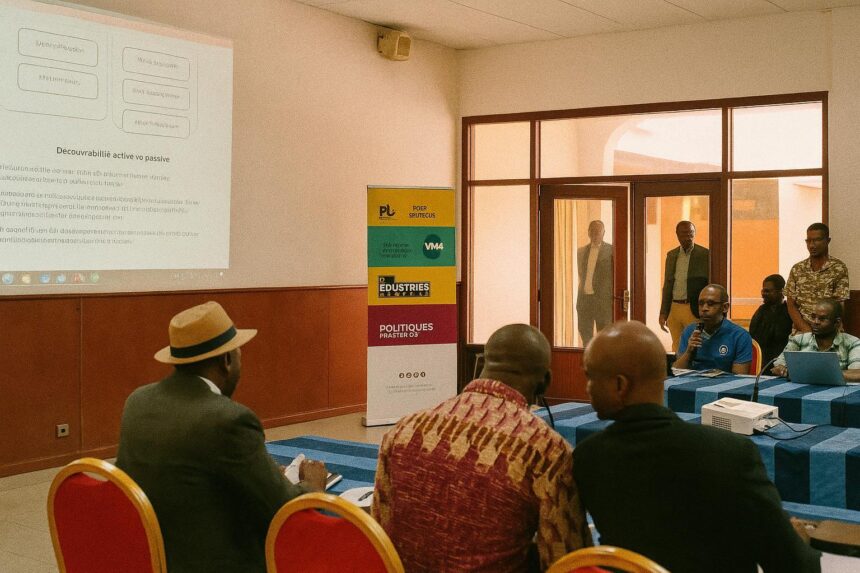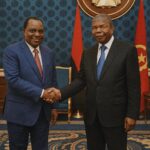Brazzaville Sets the Digital Tempo
For two brisk July days the glass façades of the Palais des congrès in Brazzaville reflected a scene as strategic as any diplomatic summit. The International Organisation of La Francophonie, joined by the general commissariat of the Pan-African Music Festival, convened producers, managers and critics from four Central African capitals around a deceptively simple question: how can a song from Pointe-Noire emerge in an American playlist driven by algorithms developed in California? By framing the workshop as a technical masterclass rather than a cultural sermon, the organisers signalled that the twelfth edition of Fespam would engage squarely with the grammar of global platforms instead of lamenting their dominance.
Discoverability: Beyond Mere Visibility
Moderator Lamine Ba, a Senegalese journalist whose résumé bridges Billboard metrics and Sahelian soundscapes, opened the session with an almost Socratic enquiry: who among you truly grasps the term “discoverability”? The hesitant show of hands underscored a semantic gap that mirrors a market gap. Visibility, Ba argued, can be purchased through advertising, yet discoverability is earned when an algorithm aligns metadata, listening history and cultural curiosity. The nuance matters; the IFPI Global Music Report 2024 attributes forty-seven percent of streaming plays to automated recommendations rather than to active searches (IFPI, 2024). African titles that fail to optimise this silent recommendation engine risk disappearing beneath the statistical noise of twenty-four million new tracks uploaded yearly.
Metadata as Diplomatic Passports for Songs
A central point of consensus emerged quickly: metadata functions as the diplomatic passport of any musical work. Without correct language codes, genre descriptors or ISRC numbers, a Congolese rumba can be exiled to the digital equivalent of a consular waiting room. Ba illustrated the issue through the case of a Kinshasa-based label whose flagship artist gained a ten-fold streaming surge after the simple act of adding Lingala and French linguistics tags. UNESCO’s 2005 Convention on the Diversity of Cultural Expressions already urges member states to facilitate such digital labelling (UNESCO, 2023). What sounds like tedious clerical labour thus becomes a geocultural strategy, ensuring that cultural goods circulate with the same ease as capital.
Reconfiguring Roles in the African Music Economy
The workshop’s forensic attention to coding did not overshadow a broader institutional critique. In many domestic markets the same individual often signs contracts, organises tours and negotiates royalties, a multitasking heroism that paradoxically dilutes professional depth. Ba’s diagnosis echoed the African Union’s Plan of Action on Cultural and Creative Industries that advocates sharper role segmentation to unlock scale (African Union, 2022). Participants from N’Djamena and Kinshasa nodded knowingly when the trainer likened the current ecosystem to a symphony performed by a lone musician: admirable, yet unsustainable when competing against full orchestras financed by multinational labels.
Francophonie’s Digital Diplomacy in Action
Speaking in a side corridor scented by Lubumbashi coffee, OIF project coordinator Kanel Engandja Ngoulou framed the initiative as an exercise in digital diplomacy. By equipping cultural operators with platform literacy, the Francophonie strengthens its linguistic and geopolitical footprint without issuing a single communiqué. The strategy dovetails neatly with Congo-Brazzaville’s own Vision 2025, which lists the creative economy among priority growth sectors. As one delegate from Pointe-Noire put it, mastering Spotify’s back-end has become as relevant to national influence as negotiating shipping rights on the Congo River.
Toward a Sustainable Continental Footprint
The closing exchanges yielded no silver bullet, yet the mood was less one of techno-utopianism than of cautious pragmatism. Participants agreed to establish a regional observatory on streaming analytics, to be hosted by the Brazzaville music office, in order to convert anecdotal success stories into data-driven policy suggestions. As dusk settled over the capital, Ba offered a final provocation. The next Davido or Fally Ipupa, he suggested, may not be the artist with the most viral dance challenge but the one whose label embeds deep-link tracking, multilingual captions and context-rich cover art. In other words, future stardom will pivot on a fusion of artistry and back-end fluency. That prospect resonates with Congo-Brazzaville’s broader objective: to project its cultural capital with the same sophistication it brings to its hydrocarbon negotiations.
If the Palais des congrès conversations achieve tangible follow-through, Fespam 2025 could be remembered less for its stage pyrotechnics and more for a discreet but consequential shift in how the continent engineers its presence within global recommendation engines. For a nation mindful of its diplomatic image, such a quietly efficient revolution may prove music to more than one set of ears.



















